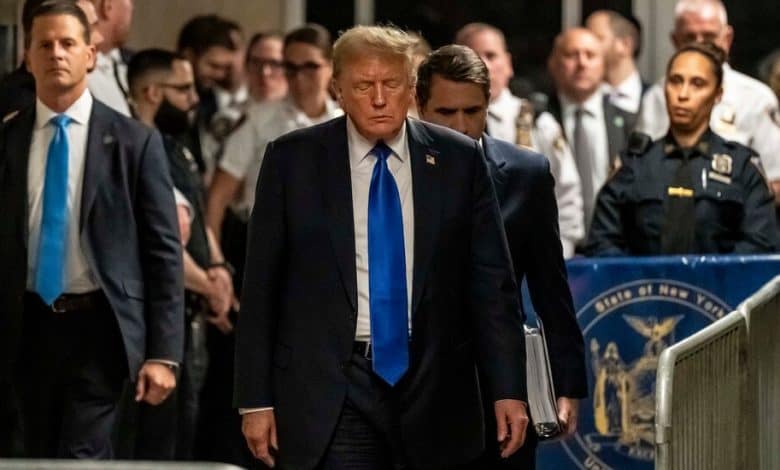Trump’s Conviction Jolts the Race. But Will It Influence the Outcome?

Donald J. Trump’s conviction on nearly three dozen felony counts plunges the country into unmapped political terrain, a rare moment that could reshuffle a 2024 race that for months has been locked in stasis and defined by a polarizing former president.
The extraordinary conviction of a former president unleashes a series of unprecedented constitutional, electoral and logistical questions. Yes, he can run for office as a felon. Less clear is whether even Thursday’s striking verdict will shake the calcified public opinion of Mr. Trump, who for nearly a decade has defied predictions of his political demise.
Now he must move through the rituals of an American presidential campaign as a criminal. It will amount to a high-pressure stress test, not only of Mr. Trump but of America’s political traditions, legal institutions and ability to hold an election under some of the greatest partisan strains in decades — if not since the Civil War.
The country will watch as Mr. Trump argues with President Biden over his criminal record next month at their first debate, in addition to sparring over the economy, foreign policy, immigration and abortion rights.
Soon after will come the unlikeliest of split screens: The sentencing on July 11, when Mr. Trump will learn whether he faces probation or up to four years in prison, is one week before he is set to formally accept his party’s presidential nomination in Milwaukee. The appeal process will play out at the same time as advertising blitzes in battleground states.
“The real verdict is going to be Nov. 5, by the people,” Mr. Trump declared as he left the Manhattan courthouse, vowing to fight through the election. “This is long from over.”
